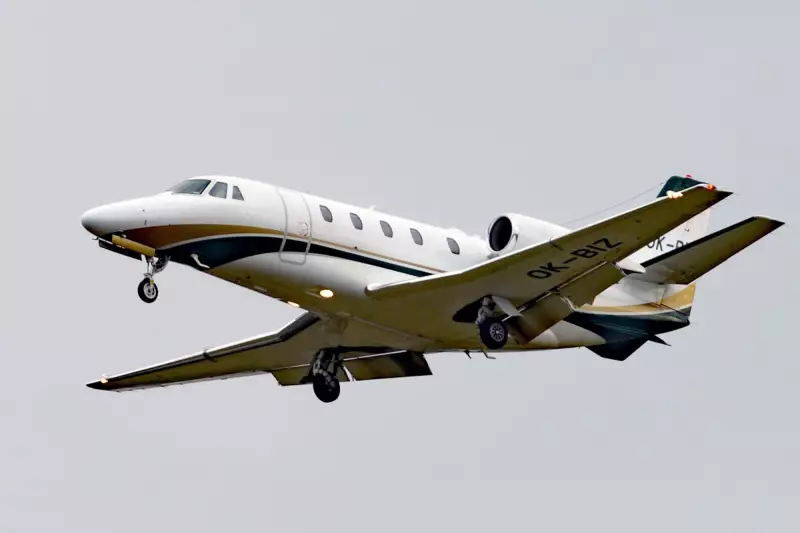
New analysis reveals that Britain could generate £2.7 billion annually by ending preferential tax treatment for private jet travellers, with climate campaigners arguing the current system allows the wealthiest passengers to pay minimal taxes while producing disproportionate pollution.
The staggering environmental cost
Climate charity Possible, which conducted the research, found that private jet travel represents one of the most polluting forms of transport per passenger yet remains among the least taxed. A single passenger travelling by private jet from London to New York emits up to 27 times more climate-altering fossil fuels than someone flying economy class on the same route.
The analysis identified approximately 100,000 private jet departures from the UK each year, producing toxic pollution equivalent to the annual emissions of an entire city like Southampton.
Current tax inequalities
Despite their significant environmental impact, private jet passengers benefit from substantial tax advantages. Possible's researchers discovered that 22% of private jet travellers pay no air passenger duty (APD) whatsoever, while only about 25% pay the highest rate.
Additionally, these journeys attract no VAT, and no fuel duty is applied to the kerosene used by private aircraft. Currently, APD raises approximately £4.2 billion annually, accounting for just 0.5% of HMRC tax receipts.
Though planned increases will raise private jet taxes to £142 for short-haul flights and £1,141 for long-haul journeys, Possible describes these amounts as "a negligible proportion of what can be tens of thousands of pounds per hour spent on chartering private aircraft."
Proposed tax reforms
The charity proposes two key reforms to create a fairer taxation system:
First, they suggest increasing APD to between 15-45% of the ticket price, which would still be lower than the 25-55% typically paid by economy class passengers. This measure alone could raise up to £1.2 billion annually.
Second, introducing a fuel duty on kerosene used by private jets, set at £5.295 per litre – ten times the normal motor-fuel rate – could generate up to £1.5 billion each year.
Combined, these changes would bring the total taxes paid by private jet passengers to approximately 55-63% of their ticket price, aligning with the tax rates paid by economy class travellers in the lowest-cost seats.
Public support and political pressure
Possible's polling indicates strong public backing for tax reform, with two-thirds (67%) of respondents supporting the introduction of fairer tax rates for private jets.
Alethea Warrington, head of aviation at Possible, stated: "Private jet passengers are currently paying almost nothing in tax while producing an astronomical amount of pollution, on journeys that only the obscenely wealthy can afford. In the cost-of-living and climate crises, that simply isn't acceptable."
She added: "Introducing a fair rate of tax on private jets – which ordinary people already pay on standard economy class plane journeys – could raise billions each year for our vital public services."
Warrington emphasised the upcoming Budget decision, noting: "The chancellor faces a clear choice: will she tax the most polluting journeys taken by the wealthiest people, or instead slash essential services relied on by the most vulnerable, such as funding for warm homes?"
The Independent has contacted the government for comment on these proposals.





